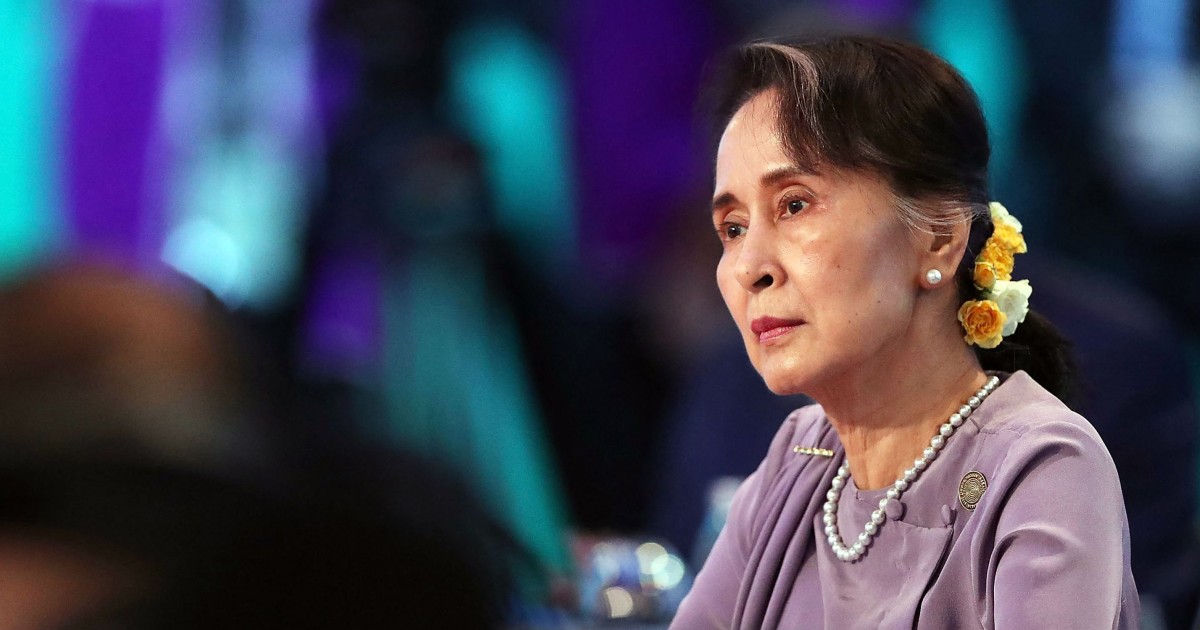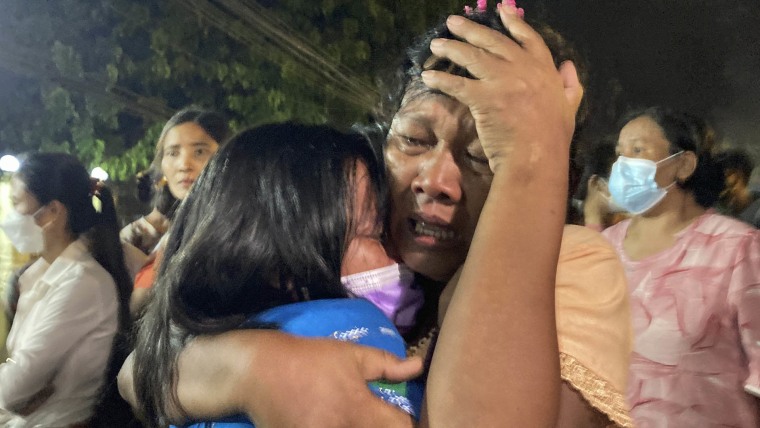Myanmar’s ousted democratically elected leader Aung San Suu Kyi was found guilty on Monday of charges including incitement and sentenced to four years in prison, a source with direct knowledge of the case confirmed to NBC News.
The source added that they are concerned for Suu Kyi’s safely. When asked what’s next for the country’s democracy movement, they said that they are “hoping for the best, but prepared for the worst.”
Ousted President Win Myint was also sentenced to four years, according to the source. There was no indication given of where the two will serve their sentences.
The military ousted Suu Kyi, the leader of the country’s civilian government, in February. At the time, she had urged people to oppose the military takeover.
The U.K. as well as the European Union, which have previously called for the restoration of democracy in Myanmar, condemned the verdict.
“The sentencing of Aung San Suu Kyi is another appalling attempt by Myanmar’s military regime to stifle opposition and suppress freedom and democracy,” Foreign Secretary Liz Truss said in a statement.
The European Union’s foreign policy chief Josep Borrell called the trial and sentencing “another step towards the dismantling of the rule of law and a further blatant violation of human rights in Myanmar.”
United Nations Commissioner for Human Rights Michelle Bachelet, meanwhile, called the trial a “sham” and said it was “politically-motivated.”
“These cases cannot provide a legal veneer to the illegitimacy of the coup and military rule,” she said.
Suu Kyi, 76, was found guilty of inciting public unrest against the military and breaching Covid-19 rules in a closed hearing. Authorities in the country imposed a gag order on Suu Kyi’s lawyer Khin Maung Zaw in October, saying his communications could cause instability.
The incitement case involved statements posted on her party’s Facebook page after she and other party leaders had already been detained by the military, while the coronavirus charge involved a campaign appearance ahead of elections in November last year which her party overwhelmingly won.
These aren’t the only charges against Suu Kyi, who was taken into custody after the takeover. Verdicts in two cases related to her alleged ownership of walkie-talkies, allegedly found when soldiers raided her home early on Feb. 1, are due later this month. She has also been charged with a list of other offences including illegally importing and violating the Official Secrets Act.
The cases against her are widely seen as contrived to discredit her and keep her from running in the next election. The constitution bars anyone sent to prison after being convicted of a crime from holding high office or becoming a lawmaker.
The U.S., several European countries, along with Australia, New Zealand and South Korea have opposed the military takeover and called for a return to democracy.
Suu Kyi led a civilian government after her party won in a 2015 election called after the military stepped back from half a century of direct rule. That ended in February when the military detained Suu Kyi and other officials in the National League for Democracy party after a November 2020 election that saw the military lose seats.






